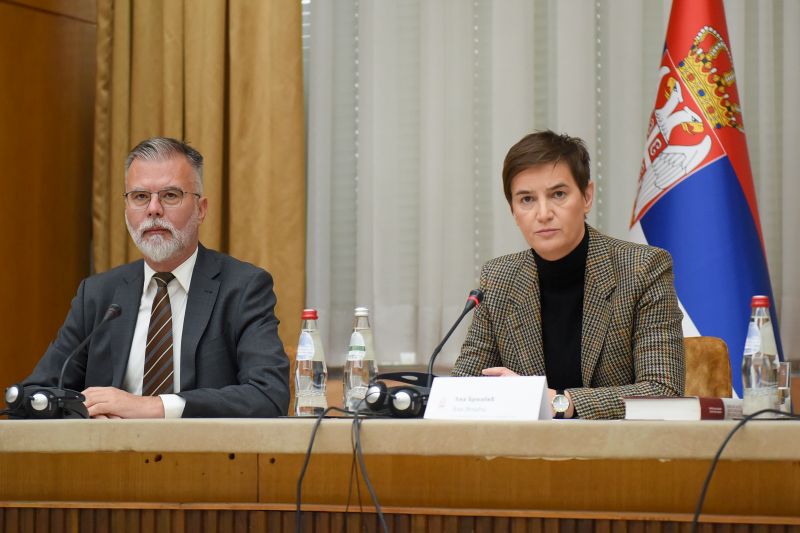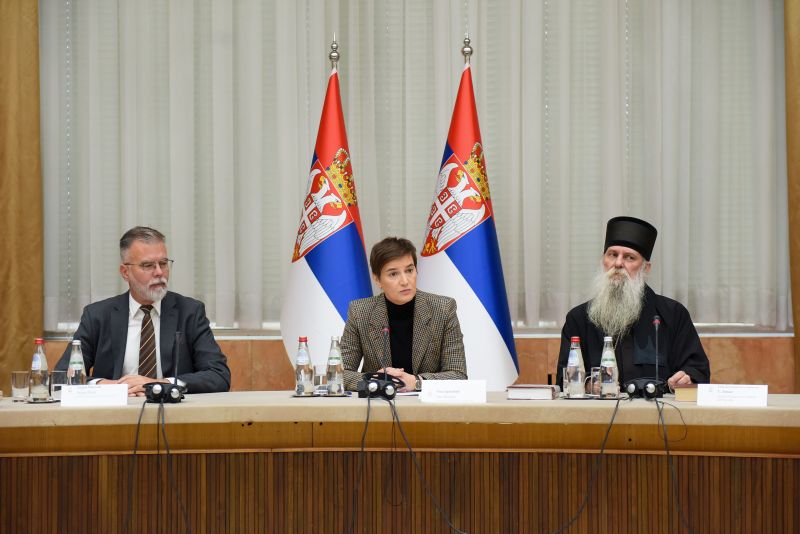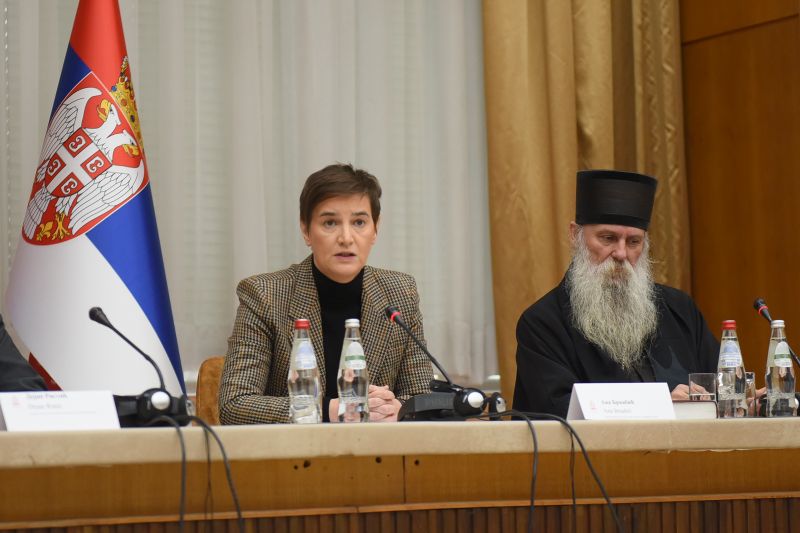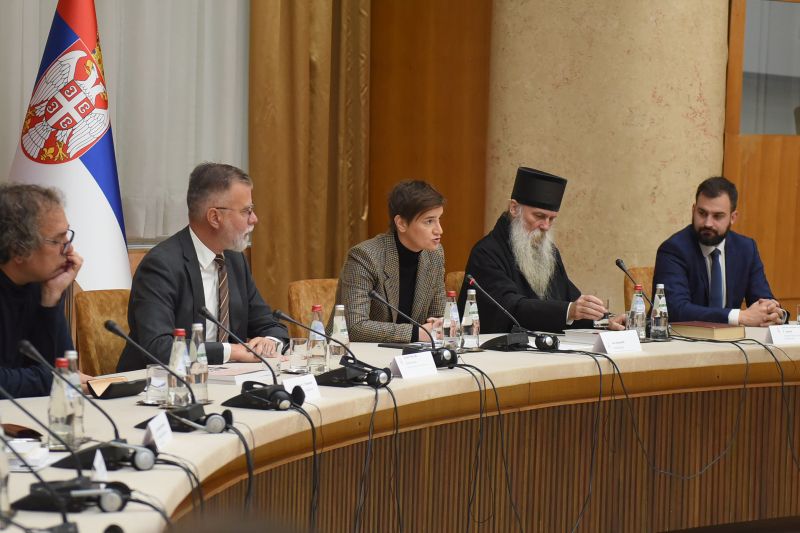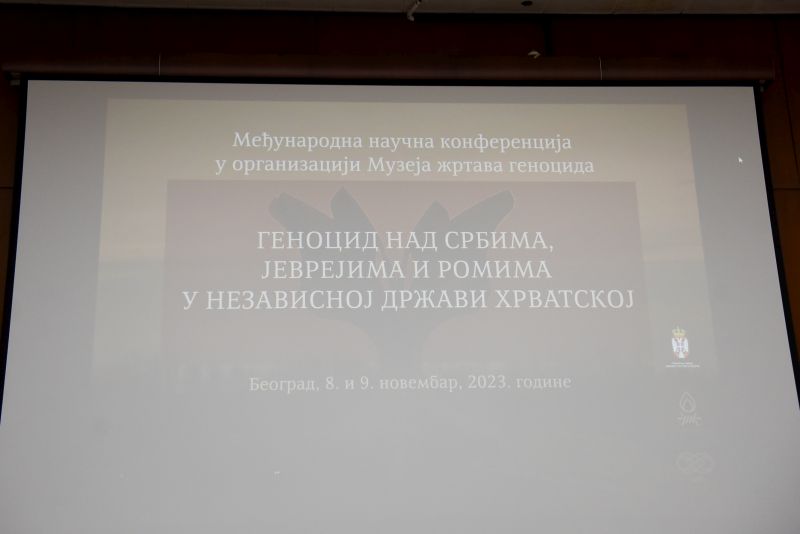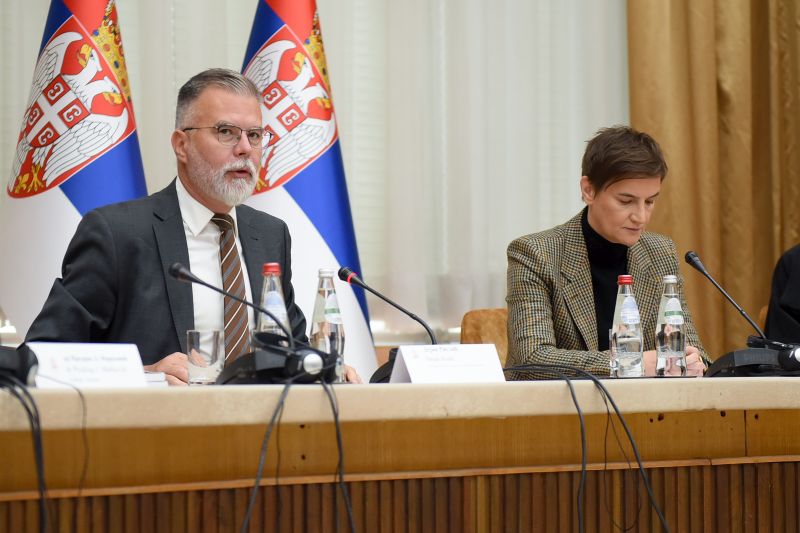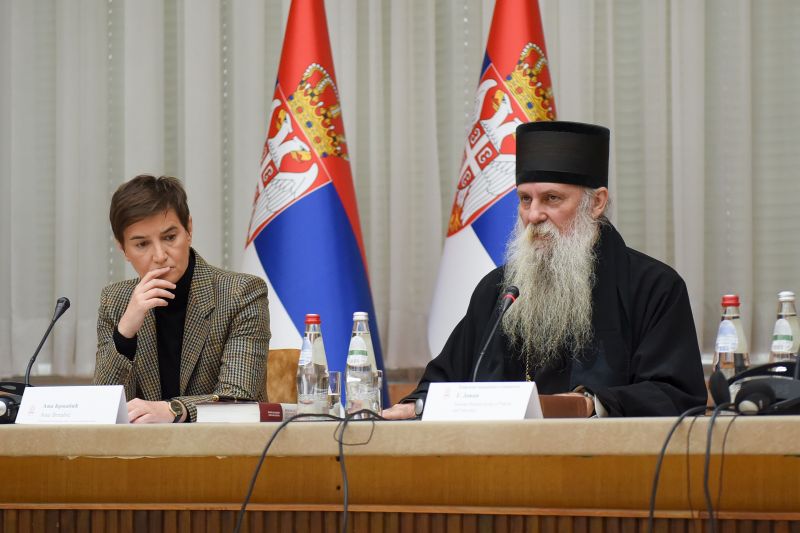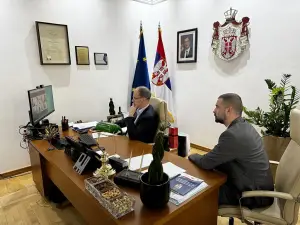Prime Minister Ana Brnabic today opened the International Scientific Conference "80 years of the concept of genocide – Case study: Genocide of Serbs, Jews and Roma in the Independent State of Croatia" and on that occasion said that the government will continue to fully support the Museum of Genocide Victims.
- Serbia
Get to know Serbia
- Citizens
Culture and science
Health services
Pension and disability insurance
- Business
Employment
Economy
- Media
- Government
- Contact
Keep in touch
Keepin touch
Whether you have a question, comment, suggestion or any problem in the purview of the government, send us your message and we will try to respond as soon as possible. If your problem is not in our purview, we will forward your message to the relevant institution.
Government provides full support to work of Museum of Victims of Genocide
Brnabic pointed out in the Palace of Serbia that she was unpleasantly surprised by how many doctorates related to Jasenovac have been defended in the past few decades at universities in Serbia and in the entire post-Yugoslav area, as well as how many scientific research projects have been implemented on the topics of Jasenovac and the suffering of civilians in the Second World War.
This gives a devastating historical picture and I think that this is where our science really needs to wake up, she stated and added that the state will help in this as much as it is necessary – whether through scientific scholarships, or through a different kind of support, to adequately motivate scientists, researchers and students.
The Prime Minister reminded that in the previous few years, the state invested a significant amount of money to start the reconstruction of the facilities of the former camp at Belgrade's Old Fairground.
Also, as she noted, the facility of the permanent museum exhibition within the Slobodiste memorial area in Krusevac was renovated and equipped, and intensive work began on the protection of the memorial cemetery of those shot in Kraljevo.
Brnabic underlined that she is particularly proud of the fact that the government of Serbia handed over the Jajinci memorial area to the Museum of Victims of Genocide for care and management.
She emphasised that it is extremely important, because the Museum of Victims of Genocide is the only one with the capacity to manage that execution ground in the way it needs to be managed and to give the initiative to visit that space by our students, young people, educational institutions, non-governmental organisations and others.
Today, Belgrade and Nis finally have streets of Jasenovac victims. At the initiative of the President of the Republic, the government of Serbia began to finance the filming of films of national importance, such as the film "Dara from Jasenovac", and the filming of the film "Children of Kozara" has just been completed, the Prime Minister noted.
-
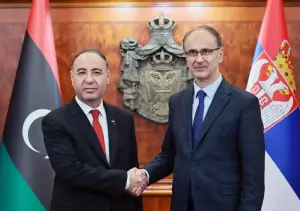 Belgrade, 5 March 2026
Belgrade, 5 March 2026Room for intensifying cooperation with Libya
-
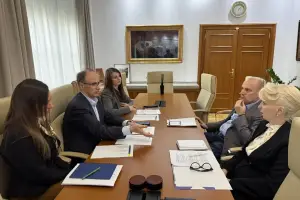 Belgrade, 5 March 2026
Belgrade, 5 March 2026Availability of medicines, care for citizens’ health government’s absolute priority
-
 Belgrade, 5 March 2026
Belgrade, 5 March 2026Cooperation with CoE on strengthening democratic institutions, improving rule of law
-
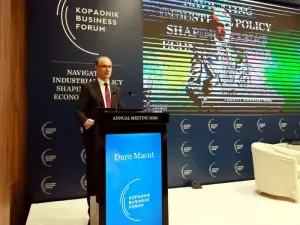 Kopaonik, 4 March 2026
Kopaonik, 4 March 2026Partnership between state, businesspeople key to Serbia’s development, progress
-
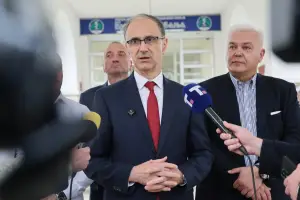 Aranđelovac, 3 March 2026
Aranđelovac, 3 March 2026Investments in healthcare, road infrastructure for development of Aranđelovac
-
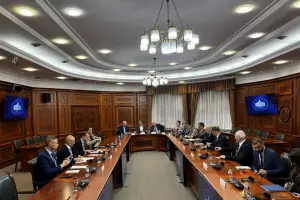 Belgrade, 3 March 2026
Belgrade, 3 March 2026Preserving competitiveness of domestic transport operators through cooperation with EU
-
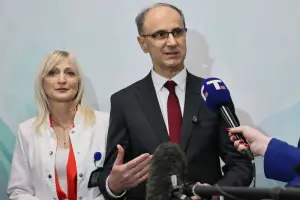 Belgrade, 2 March 2026
Belgrade, 2 March 2026Introduction of e-Sick Leave system to raise level of healthcare services
-
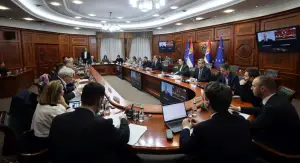 Belgrade, 27 February 2026
Belgrade, 27 February 2026Responsible state economic policy for continued GDP growth
-
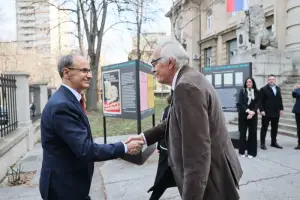 Belgrade, 27 February 2026
Belgrade, 27 February 2026State Archives of Serbia of great importance for preservation of cultural, historical heritage

